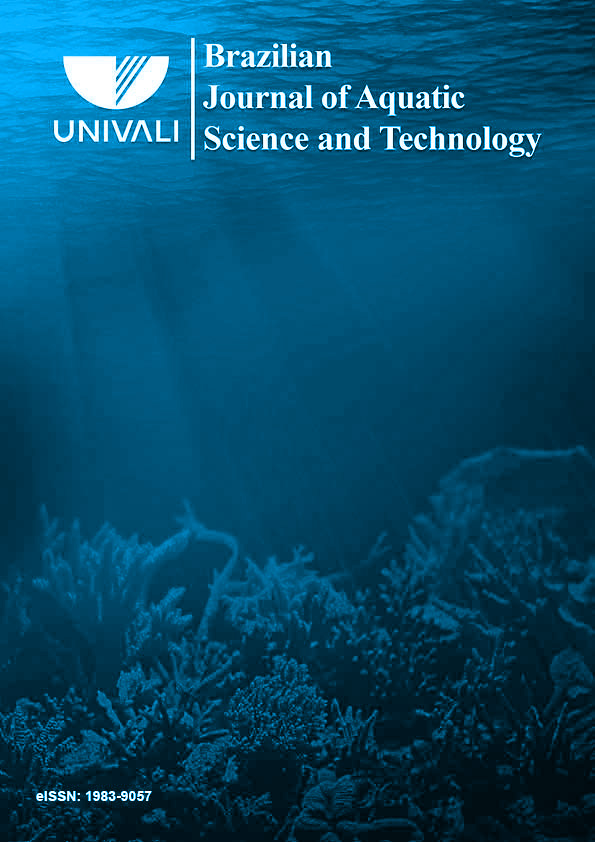Análise de processos de licenciamento ambiental de empreendimentos de carcinicultura no estado da Bahia, Brasil.
DOI:
https://doi.org/10.14210/bjast.v23n1.13439Resumo
The shrimp farming has undergone a great expansion in recent years, in which the State of Bahia has been playing an important role in the national context. This expansion has generated many benefits but also major concerns about its increasing environmental impacts. Considering the potential of the Environmental Licensing (EL) to induce necessary measures to achieve the sustainability requirements, this research was developed with the objective of analyzing the execution of the EL of shrimp farming in the State of Bahia and its contributions to the sustainable development. In this purpose, 15 EL's processes required in the State of Bahia were analyzed, aiming to evaluate the practices of assessment of the competent agencies and their contributions to the insertion of the objectives of sustainability in the EL of the activity. Because the available processes referred to regularization licenses, the analysis of the preventive character of the EL was impaired. The results suggest that the Technical Opinions emphasize the aspects related to the effects of the activity on the environment, which demonstrates an analysis behavior of the environmental agency based on corrective actions. The social aspects were, in general, the most neglected, in the Technical Opinions analyzed. The analysis of the required conditions in the issued also suggests a significant deficiency, reinforcing the need for important information and conditions to be required before the release of the licenses to ensure compliance. While recent legal regulations about the EL of the sector have brought some breakthroughs in addressing sustainability, their implications have not yet been sufficient to reverse the current scenario.
Downloads
Publicado
Edição
Seção
Licença
Autores que publicam nesta revista concordam com os seguintes termos:
- Os Autores mantém os direitos autorais e concedem à revista o direito de primeira publicação, com o trabalho simultaneamente licenciado sob a Creative Commons Attribution License que permitindo o compartilhamento do trabalho com reconhecimento da autoria do trabalho e publicação inicial nesta revista.
- Autores têm autorização para assumir contratos adicionais separadamente, para distribuição não-exclusiva da versão do trabalho publicada nesta revista (ex.: publicar em repositório institucional ou como capítulo de livro), com reconhecimento de autoria e publicação inicial nesta revista.
- Autores têm permissão e são estimulados a publicar e distribuir seu trabalho online (ex.: em repositórios institucionais ou na sua página pessoal) a qualquer ponto antes ou durante o processo editorial, já que isso pode gerar alterações produtivas, bem como aumentar o impacto e a citação do trabalho publicado.

